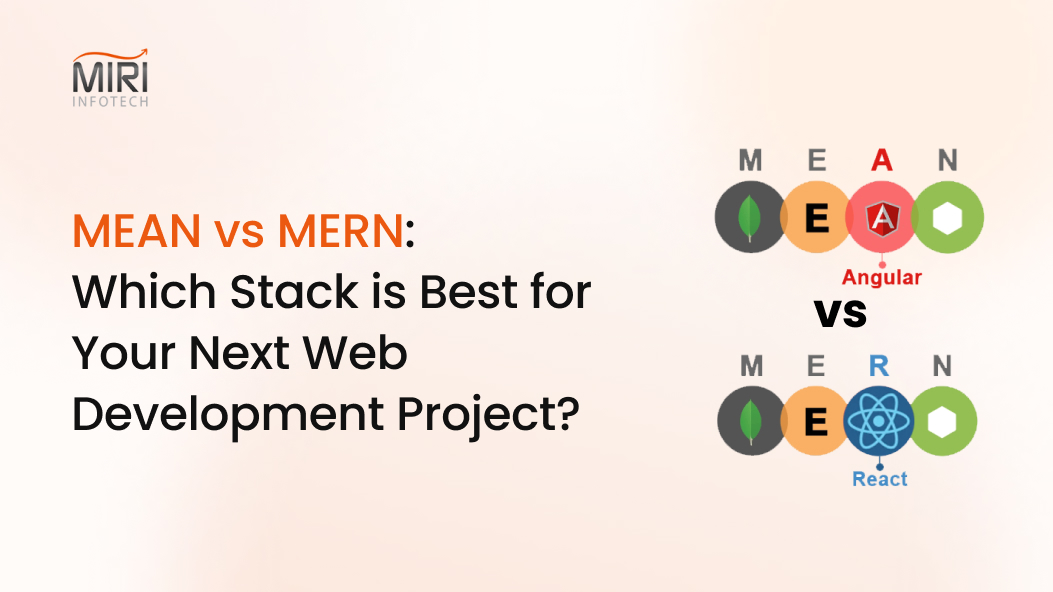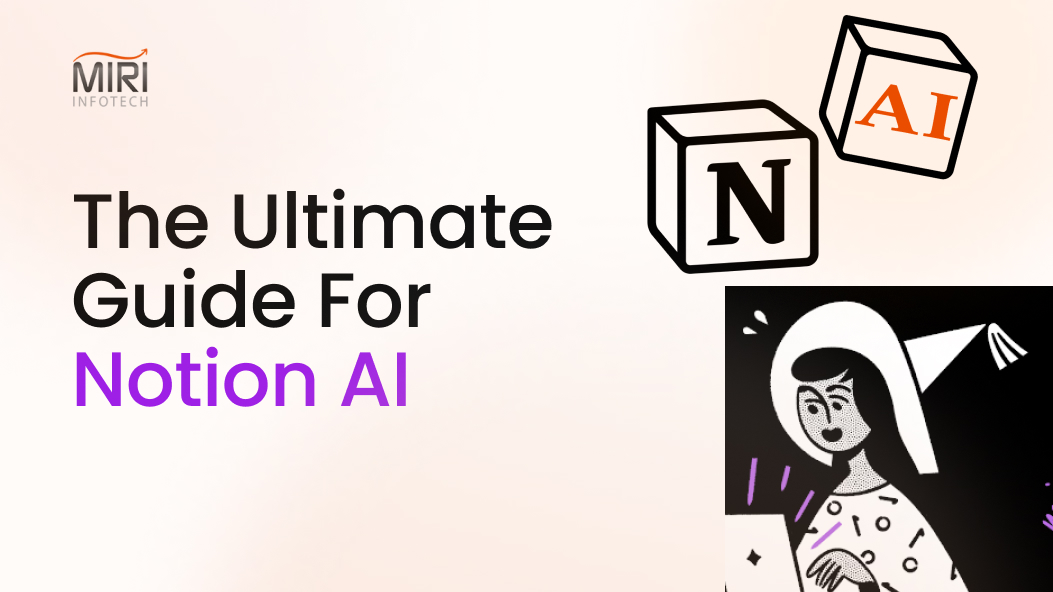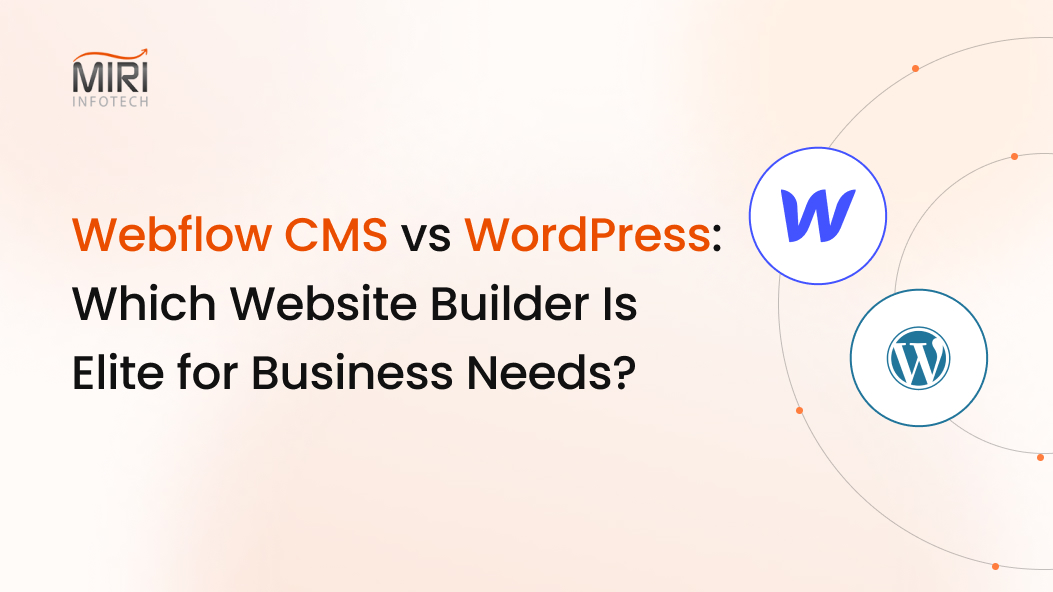The world of web development has seen an explosion of frameworks and libraries in recent years, each claiming to be the best choice for building web applications.
But if I talk about the most popular ones, then MEAN and MERN are the two which are ruling the full-stack development world.
Now the question arises which one is the best, MEAN or MERN Stack?
To determine which Stack best suits your web development project, it is essential to understand the differences between both MEAN and MERN. Here you can get a closer look at various factors such as security, scalability, MVC support, and project timeline, which will help you make the right decision and choose the most suitable Stack for your project.
So, let’s start the MERN vs MEAN battle!
What Is MERN Stack?
MERN Stack is a very popular web development stack that consists of four key components: MongoDB, Express.js, React.js, and Node.js. It’s a full-stack solution for building modern web applications, where each component is built using JavaScript.
MERN Stack Components
Here is an overview of each component of the MERN Stack:
- MongoDB: This is a NoSQL database that stores data in JSON-like documents with dynamic schemas.
- Express.js: A back-end web application framework that runs on Node.js. It provides a simple and robust set of features for building web applications and APIs, including routing, middleware, and templates.
- React.js: A front-end JavaScript (JS) library for creating user interfaces. It enables developers to build reusable UI components and efficiently update the view when data changes.
- Node.js: A JavaScript runtime environment that allows developers to run JavaScript code on the server side. It provides an event-driven, non-blocking I/O model that makes it lightweight and efficient.
By combining these four components, developers can build scalable and efficient web applications with a consistent and cohesive development experience across the front-end and back-end.
Moreover, MERN Stack is often used for building full-stack web applications, including social networks, e-commerce websites, and real-time chat applications.
Pros And Cons Of Choosing MERN Stack

What Is MEAN Stack?
MEAN Stack is an open-source full-stack technology, which means it is free to use and can be customized according to specific needs. The significant advantage of MEAN Stack is that it enables developers to write client-side and server-side applications in a single language, JavaScript. Resulting in a more efficient development process and allowing for easier communication and collaboration between team members.
MEAN Stack Components
Here is a brief overview of each component:
- MongoDB: A popular NoSQL database that stores data in JSON-like documents with dynamic schemas. It offers high availability and robustness, making it ideal for large-scale applications.
- Express.js: A flexible and lightweight back-end web app framework for Node.js. It offers a range of features for building web applications, including routing, middleware, and templating.
- AngularJS: A dynamic and interactive front-end JavaScript framework used for building complex user interfaces. It enables developers to create reusable UI components, build dynamic UIs with ease, and efficiently update the view when data changes.
- Node.js: A JavaScript runtime environment that enables developers to run JavaScript code on the server side. It has a non-blocking I/O model that makes it lightweight, efficient, and suitable for building high-performance, scalable applications.
Pros and Cons Of Using MEAN Stack

MEAN or MERN Stack: Which One Is Most Famous?
The demand for Angular vs React driveways and the vogue of MEAN vs MERN stacks, respectively. Angular has been a very prominent development stack for a very long time. However, React is now taking the position of Angular in recent years. But the permanent 1st position is still not fixed as it changes as per the market demand & type of the project.
According to the 2018 HackerRank Developer skills report, Angular was the most popular web framework, as 31.4% of developers remarked that they comprehended it. However, 19% of programmers remarked that they knew React, and this placed React in the 3rd position.
The same report in 2019 found that 32.63% of programmers desired to learn the React development stack. The corresponding number for Angular drained to 26.92%, which means that React 2019 started earning more prevalence than Angular.
The absence of backward compatibility between Angular 2 and Angular 1 adversely influenced the reputation of Angular. Additionally, StackOverflow Developer Survey Results 2020 and 2021” also support the summing-up that React is winning the development stack popularity race, meaning MERN is at a leading position in terms of popularity.

2021 report confirms that React is the most used web framework, as 40.14% of developers prefer to develop using it. The analogous number for Angular is 22.96%, which places it in the 4th position.
MEAN Stack vs MERN Stack: Know The Difference Between Two Stacks

Detailed Comparison To Choose Between MEAN & MERN Stack
Here view the detailed comparison between both MERN vs MEAN. It will help give a closer look at both technologies and decide which one will best fit your project needs.
Advanced And Simple UI
MEAN Stack uses AngularJS, a full-featured JavaScript framework for building complex and feature-rich web applications. AngularJS provides features like two-way data binding, dependency injection, and modular architecture, which makes it easier to build large-scale applications. It also has a large community and extensive documentation, making it easier to find support and resources.
MERN stack, on the other hand, uses React.js, a JavaScript library for building simple and lightweight user interfaces. React.js provides a virtual DOM, which improves performance by minimizing the amount of DOM manipulation required. It also has a component-based architecture, which makes it easier to build reusable UI components. React.js has earned much popularity in recent years due to its simplicity & flexibility.
Overall, AngularJS used in the MEAN stack provides more advanced features for building complex and feature-rich UIs, while React.js used in the MERN stack provides a simpler and lightweight approach for building UIs. The choice between the two depends on the specific needs of the project.
MVC Support
MEAN Stack uses AngularJS as the front-end framework, providing robust MVC architecture support. AngularJS includes various advanced features that make implementing the MVC pattern in web apps easier.
Express.js, the backend framework used in the MEAN stack, also strongly supports the MVC architecture.
MERN stack uses React.js as the front-end library, which is not a full-fledged framework like AngularJS but still provides support for the MVC pattern through its component-based architecture. In the MERN stack, the Model and Controller are implemented using Node.js and Express.js, while the View uses React.js.
Overall, both MEAN and MERN stacks provide strong support for the MVC architecture, with the MEAN stack offering more robust support due to the advanced features provided by AngularJS.
Security And Scalability
MEAN, and MERN stacks provide several security features, such as data encryption, secure authentication, and authorization mechanisms.
Moreover, both MEAN and MERN stacks provide good support for scaling web applications. MEAN Stack supports horizontal scaling, which involves adding more servers to distribute the load.
MERN stack also supports horizontal scaling, and it is known for its fast rendering and response times due to its lightweight and component-based architecture.
Overall, both MEAN and MERN stacks provide good support for security and scalability.
Project Timeline
The project timeline for both MEAN and MERN stacks can vary depending on several factors, such as the project’s complexity, the experience and expertise of the development team, and the availability of resources.
The MEAN stack can be quicker to set up and develop as it provides a full-fledged front-end framework, AngularJS, with many built-in features for developing web applications. MEAN stack also provides robust support for the MVC architecture, which can simplify the development process.
On the other hand, the MERN stack can take a little longer to set up and develop as it uses React.js, a front-end library and not a full-fledged framework. However, the MERN stack provides more flexibility in terms of development, as React.js allows developers to build custom components and provides better performance due to its lightweight architecture.
In this case, the MEAN stack is the clear winner.
MEAN Stack vs MERN Stack: Comparison Table

Wrapping Up
The MERN vs MEAN stacks are excellent choices for web app development. Both stacks offer similar features and benefits, such as MVC support, CRUD operations, and scalability.
MEAN stack may be a good fit for large-scale applications that require a high level of complexity and sophistication.
On the other hand, the MERN stack may be a good fit for applications that require a fast and responsive UI and are relatively less complex.
So, the choice between MERN and MEAN stack ultimately depends on the specific needs and requirements of the application being developed. By considering the various factors described in the write-up, you can make the decision and choose a stack that best suits your project’s needs.
Moreover, if you are facing difficulty in making the right choice between MERN vs MEAN Stack for your website development or need a suggestion, get in touch with MiriTech experts!



